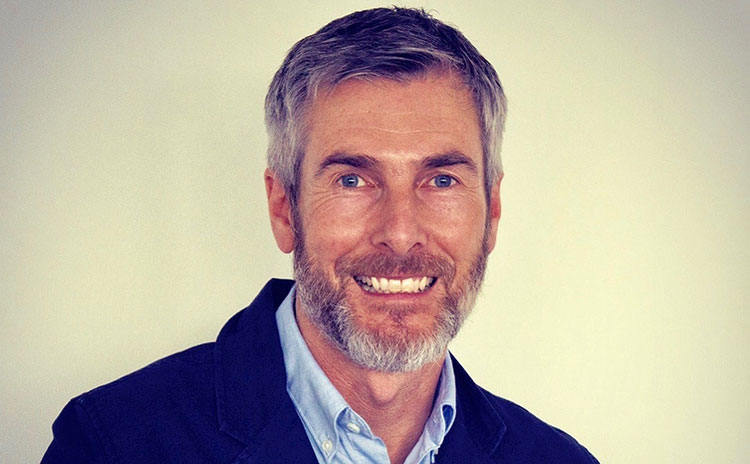Brand Behaviour = Brand Credibility

More and more people want to feel morally good about the things they consume and like relevant brands to reflect their beliefs.
These are key issues that I discuss in my writing and talks and were highlighted yet again by the recent high-profile, and highly controversial, Kaepernick/Nike advertising campaign.
The context here is that far too many brands like to portray themselves in glowing terms when it comes to a supposed brand purpose or indeed brand viewpoint, but far few too actually do something meaningful to back up those claims.
In addition, the actions that a brand takes in this instance have to go far deeper than simply seeking to tactically align with a cultural ‘hot topic’ if it’s not to be seen to be merely virtue signalling and attempting to hijack an important social issue.
So the issues of credibility and authenticity are absolutely key.
What seems abundantly clear is that the way to gain credibility is to act in a manner that deserves it, and which clearly links to the authentic roots of the brand. Otherwise, those actions will do the opposite of gaining credibility, and instead will undermine the brand’s authenticity. All this whilst also alienating even more people than might otherwise have been annoyed as a result of the brand demonstrating, for instance, an apolitical stance.
Thus its reputation capital, that vital combination of ‘honesty, competence and reliability’ that do so much to enable levels of consumer-brand engagement, will be weakened. Those values play a pivotal role in the foundations of attractive, successful, enduring brands.
Meanwhile, in a post-truth world, companies are faced with a serious challenge: so much of modern life is defined by mistrust.
The ‘trust issue’ is a central theme of my new book, for which I conducted a mass of research into how a post-truth culture is impacting businesses, across an array of business sectors, on a global basis. That research has illuminated the cultural, social and business realities shaping consumer-brand perceptions.
This demonstrates how the ‘good brand’ vs ‘bad brand’ choice is an ever more crucial decision-factor when ‘the paradox of choice’ exists in seemingly every sector and where product differentiation can be infinitesimal. Thus the ‘actual’ difference between ethical brands with a ‘moral code’ and those exposed as being without one, is increasingly a key factor in consumer brand adoption or rejection.
In an increasingly politicised public square, it’s clear that brands have to stand for something, as to do nothing by ignoring an emotive issue close to the reality of consumers’ lives may be interpreted as a ‘supportive’ stance by the act of simply being silent, resulting in a form of image contagion.
Rather than being a transient ‘on-trend’ piece of additional brand engagement, more and more companies are realising that this topic is a core element of brand building that’s here to stay.
So brands have to take care not only of their current, and possibly lightweight, corporate social responsibility plans, but also in developing deep and long-term ‘business citizenship’ strategies, which then need demonstrating by their actions.
These in turn need to be underpinned by impactful communications that bring the brand’s values and actions to life, via motivating stories that explain these values in an entertaining manner.
When done properly, and with the right motivation, the results can be astounding from a joint value creation perspective, where both shareholders and society benefit from business, with brand ‘reputation capital’ also being reinvigorated.
And as we all know: reputation matters.
Finally, I’ve collated the key learnings into a ‘Post-Truth Brand Manifesto’. Here is a brief summary of it…
The Post-Truth Brand Manifesto
Be authentic
Authenticity has been one of the core tenets of successful businesses since the idea of branding first began. But truly authentic companies that want to earn and keep our trust have to ‘live it like they say it’. Increasingly, this will mean organisations taking positive, apolitical action.
Be transparent
For brands to thrive, they need to find a way to regain and retain the confidence of consumers. This starts with transparency. This is a business-wide issue, involving every facet of the organisation.
Respect privacy
It’s hard to overstate the seriousness of this subject, and the levels of antipathy engendered towards businesses that are seen to be profiting from ‘surveillance capitalism’.
Demonstrate empathy
More and more people want to find ‘meaning and purpose’ in their lives, and are attracted to culturally aware brands that reflect their viewpoints as ‘social citizens’.
Be trustworthy
It’s no coincidence when companies which are trusted most tend to be those which have either been around long enough to have clearly demonstrated their ‘good business’ and/or ‘reliable product’ credentials, or indeed are those with transparency built-in to the core of their business model.
Bring the best of the CEOWORLD magazine's global journalism to audiences in the United States and around the world. - Add CEOWORLD magazine to your Google News feed.
Follow CEOWORLD magazine headlines on: Google News, LinkedIn, Twitter, and Facebook.
Copyright 2025 The CEOWORLD magazine. All rights reserved. This material (and any extract from it) must not be copied, redistributed or placed on any website, without CEOWORLD magazine' prior written consent. For media queries, please contact: info@ceoworld.biz








